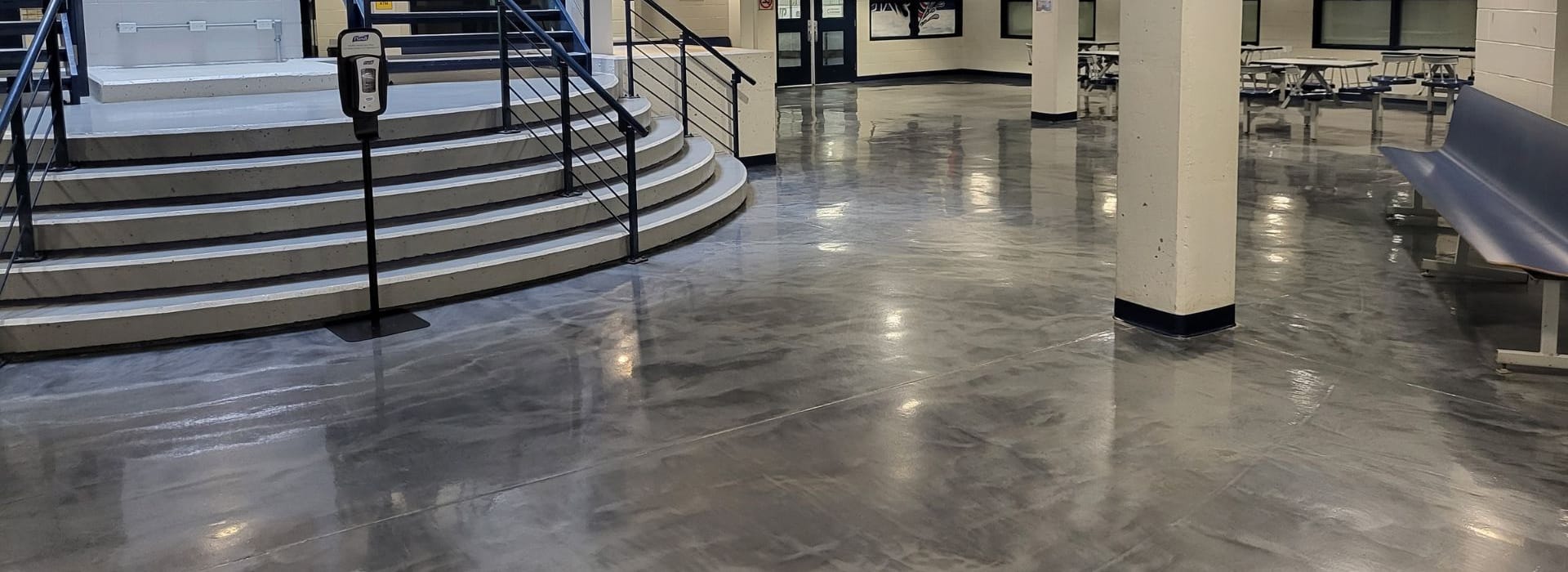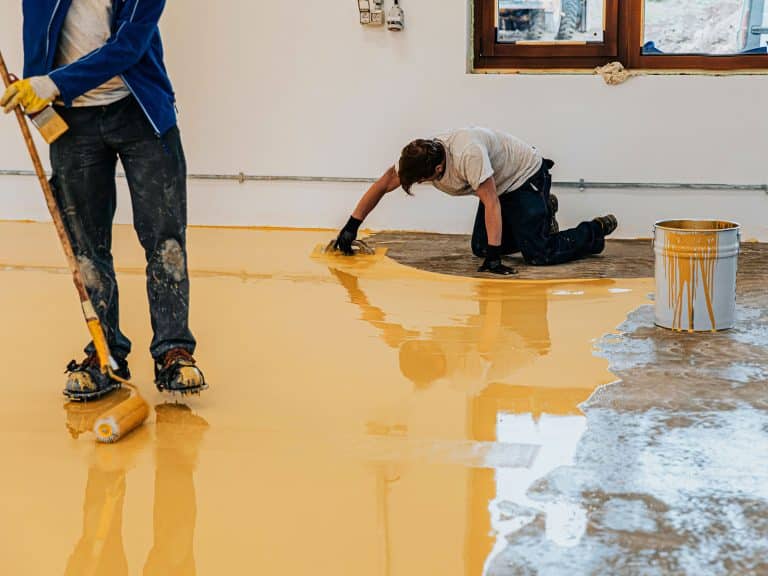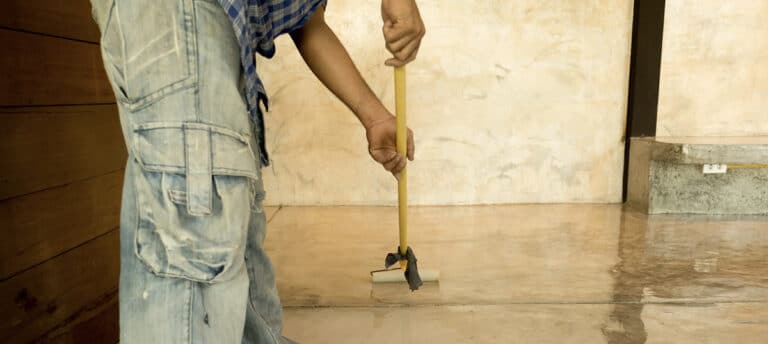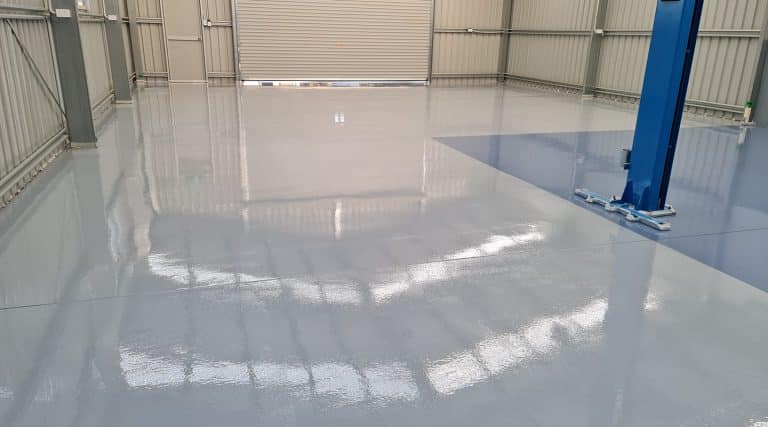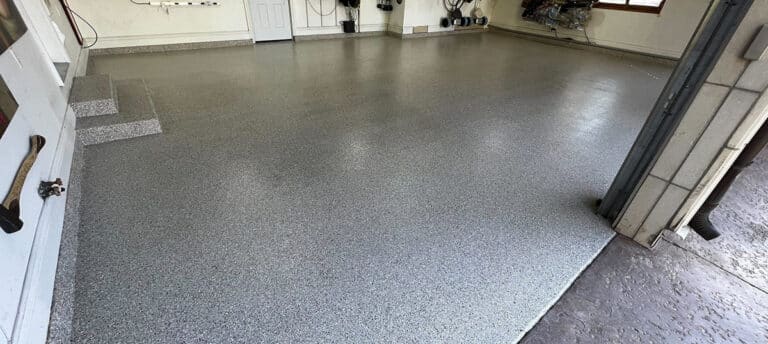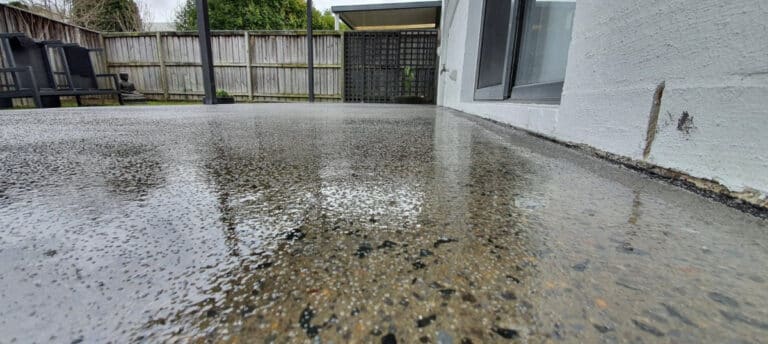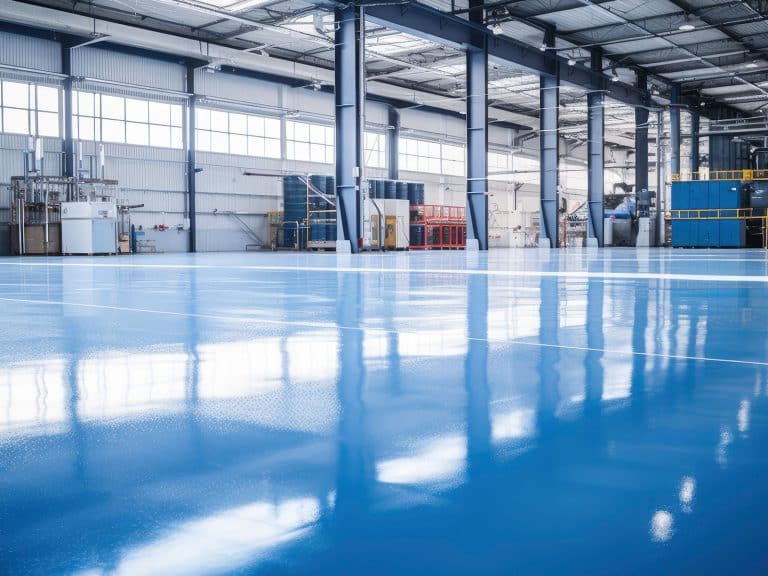Is Epoxy Flooring Slippery? Top Misconceptions and Safety Tips
When it comes to choosing flooring options, epoxy flooring has become a popular choice, and it’s easy to see why.
With its sleek finish, durability, and low maintenance, epoxy flooring can transform any space, from garages to commercial kitchens, into a modern masterpiece.
But a question that often comes up is, “Is epoxy flooring slippery?”
After all, safety is just as important as aesthetics, especially in a city like Perth where the climate can vary widely from hot and dry to cool and wet.
Epoxy has been trending upward in Perth, both in residential and commercial spaces. This surge in popularity can be attributed to its versatility, high resistance to wear and tear, and wide range of finishes that suit various needs and styles.
In this article, we’ll dive into the nitty-gritty of epoxy flooring’s slip resistance, how it performs in Perth’s unique environment, and what you can do to ensure your floors are both stylish and safe.
Let’s get right into it.
| PM INDUSTRIES TIP: While epoxy flooring can be slippery, especially when wet, adding non-slip additives or choosing textured finishes can significantly reduce this risk. |
Is Epoxy Flooring Slippery? Unpacking the Facts
The short answer: it can be, but it doesn’t have to be.
Let’s break it down to give you a clearer picture of how epoxy performs, especially in Perth’s diverse climate.
Why Epoxy Flooring Might Be Slippery
Epoxy’s sleek, shiny finish is one of its main selling points, providing a smooth, seamless look that’s incredibly attractive.
However, this glossy finish can become slippery, particularly when wet.
Perth’s weather, which ranges from dry heat to sudden downpours, can contribute to these conditions, making it essential to consider how epoxy will behave underfoot in your specific environment.
The potential for slipperiness is usually higher with standard, high-gloss epoxy finishes. When water, oils, or other liquids spill on a glossy surface, it can create a slick layer that increases the risk of slips and falls.
This is particularly concerning in areas like bathrooms, kitchens, or garages, where spills are more likely.
How to Make Epoxy Flooring Safer
- Non-Slip Additives: One of the most effective ways to reduce slipperiness is by adding a non-slip additive to the epoxy during installation. These additives, which can include sand, gravel, or aluminium oxide, create a textured surface that enhances grip. This is an excellent option for homes with children or elderly residents or for commercial spaces like kitchens and workshops where spills are frequent.
- Matte or Satin Finishes: Choosing a matte or satin finish instead of a high-gloss one can also reduce the likelihood of slips. While you may sacrifice some of the shine that makes epoxy so visually appealing, the trade-off can be worthwhile for safety reasons.
- Regular Maintenance: Keeping your epoxy floors clean and dry is crucial for maintaining a safe surface. Regular sweeping and mopping will prevent dust and debris from accumulating, which can make floors more slippery. Additionally, promptly cleaning up any spills will minimise the risk of slipping.
- Textured Epoxy Options: Some products come with built-in textures designed to increase traction. Quartz-filled epoxy floors, for example, offer both durability and slip resistance, making them a fantastic option for areas that might get wet or need extra grip.
- Environmental Considerations: Perth’s climate can play a significant role in how slippery epoxy flooring might feel. In cooler, wetter months, moisture can increase slipperiness. In contrast, during hot, dry spells, dust can settle on the floor and reduce traction. Understanding your environment and choosing the right type of epoxy and finish can help mitigate these risks.
POPULAR: How to Clean Epoxy Floors
Practical Applications and Considerations
For residential homes, especially those with outdoor spaces like patios or pool decks, epoxy can be an excellent choice due to its durability and aesthetic appeal.
However, ensuring the chosen epoxy has non-slip properties or is appropriately textured will be crucial for safety.
Commercial spaces, such as restaurants, warehouses, or hospitals, also benefit significantly from epoxy’s resilience and easy maintenance. Here, safety is paramount, so investing in non-slip additives or textured finishes is a must.
While epoxy flooring can be slippery, various solutions are available to make it a safe, practical choice for your Perth home or business.
By selecting the right type of epoxy, incorporating non-slip additives, and performing regular maintenance, you can enjoy all the benefits of this modern flooring without sacrificing safety.
Epoxy Flooring: Conditions, Recommendations, and Regulations
Understanding Perth’s Climate and Its Impact
Summer Considerations
During Perth’s hot summer months, the flooring can expand and contract due to temperature fluctuations. This can sometimes cause cracking or bubbling if the epoxy is not installed correctly or if a poor-quality product is used.
It’s crucial to choose an epoxy formulation that is designed to handle extreme temperatures.
Winter Considerations
In the winter, the increased humidity and occasional rainfall can make epoxy floors more susceptible to becoming slippery, especially if the surface is smooth and glossy.
This is why many experts recommend adding non-slip additives or opting for a textured finish to ensure safety during wetter months.
Optimal Sizes and Spaces
Residential Spaces
For homes, epoxy is ideal for garages, kitchens, and outdoor areas like patios or pool decks.
However, it’s important to consider the size of the area. Smaller spaces like bathrooms may require special attention to ventilation during installation due to the fumes produced by some epoxy products.
Commercial Spaces
In commercial settings, such as warehouses, restaurants, or hospitals, epoxy can cover large expanses without seams, reducing the risk of tripping hazards.
However, large-scale installations require meticulous preparation to ensure an even application and proper curing.
Wrapping It Up: Is Epoxy Flooring the Right Choice for You?
Deciding whether epoxy is suitable for your Perth property comes down to understanding its benefits and potential challenges. Here’s a quick recap of what we’ve covered to help you make an informed decision:
- Slipperiness Concerns: While epoxy flooring can be slippery, especially when wet, adding non-slip additives or choosing textured finishes can significantly reduce this risk.
- Perth’s Climate Impact: Hot, dry summers and cool, wet winters in Perth can affect the flooring. Proper installation and the right product choice can mitigate these issues.
- Recommendations and Installation Tips: Always opt for professional installation, choose high-quality products, and follow a regular maintenance routine to keep your floors looking great and safe.
- Regulations and Permits: Ensure compliance with local building codes and regulations, and hire licensed contractors for peace of mind and legal protection.
Ready to Transform Your Space? Contact PM Industries Today!
At PM Industries, we pride ourselves on being Perth’s go-to experts for epoxy flooring. With years of experience and a legacy of excellence, we understand what it takes to deliver flawless, safe, and stylish epoxy floors tailored to your needs.
Whether you’re looking to revamp your home, business, or industrial space, our team is here to guide you every step of the way.
Don’t let the complexities of flooring installations lead to costly mistakes. Trust our skilled professionals to provide the highest quality service, ensuring your floors not only look great but also stand up to the demands of daily use in Perth’s unique climate.
Ready to take the next step? Contact PM Industries today at 0436 837 699 or claim your fast and FREE quote now.

